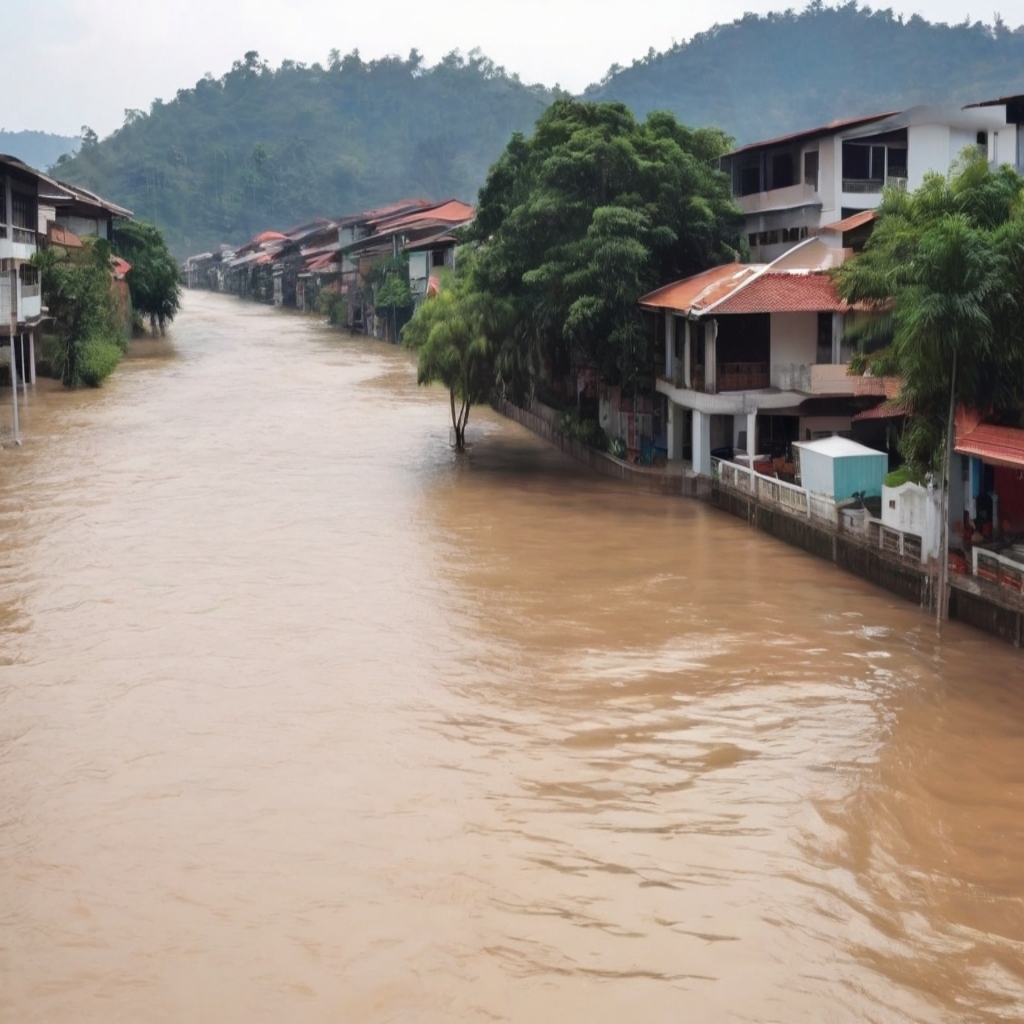Kuala Lumpur, February 21, 2024: Malaysia is poised to revolutionize its approach to disaster management, particularly in addressing flooding issues, through the adoption of cutting-edge technologies, including Artificial Intelligence (AI) and big data analytics. This move comes as Deputy Prime Minister Datuk Seri Ahmad Zahid Hamidi announced the country’s intention to replicate Japan’s successful methods during his ongoing visit to Osaka.
New strategies for effective flood management
During a briefing on disaster management in Osaka, Ahmad Zahid emphasized the effectiveness of Japan’s strategies, particularly in the long term. He highlighted the importance of integrating AI technology and big data analytics into Malaysia’s disaster management framework to enhance preparedness and response mechanisms.
Coordinated efforts by national agencies
Ahmad Zahid revealed that the National Disaster Management Agency (Nadma) and the Department of Irrigation and Drainage (JPS) will spearhead the implementation of these innovative approaches. He stressed the need for comprehensive measures that encompass not only immediate relief efforts but also long-term solutions involving improved irrigation, drainage systems, and flood control mechanisms.
Lessons from Osaka’s expertise
Drawing from Osaka’s experience spanning over four decades, Ahmad Zahid underscored the significance of investing in flood mitigation infrastructure, such as large-capacity water pumps. He emphasized the importance of prioritizing long-term solutions to minimize costs associated with frequent repairs and upgrades over the next several decades.
Collaborative efforts for disaster risk reduction
Ahmad Zahid affirmed his commitment to collaborating with Deputy Prime Minister and Minister of Energy Transition and Water Transformation Datuk Seri Fadillah Yusof to coordinate mitigation efforts aimed at reducing disaster risks across Malaysia. He emphasized the necessity of a unified approach to address the multifaceted challenges posed by natural disasters, including floods.
Optimizing flood management through AI
The integration of AI technology into Malaysia’s flood management strategies is poised to revolutionize disaster response capabilities. By leveraging AI-driven predictive analytics, authorities can anticipate flood patterns, enabling proactive measures to mitigate risks and minimize the impact on affected communities.
Harnessing big data for informed decision-making
The utilization of big data analytics will enable authorities to glean valuable insights from vast datasets, facilitating informed decision-making in disaster management. By analyzing historical trends and real-time data, policymakers can devise strategies that are tailored to the unique challenges posed by floods in different regions of the country.
Strategic investments for sustainable solutions
Ahmad Zahid emphasized the importance of strategic investments in infrastructure that offer sustainable solutions for mitigating flood risks. By prioritizing long-term planning and maintenance, Malaysia aims to minimize the economic and social costs associated with recurring floods, thereby enhancing the resilience of vulnerable communities.
Looking ahead: A resilient future
As Malaysia embraces AI technology and innovative approaches to flood management, the nation is poised to build a more resilient future. By drawing from international best practices and fostering collaboration among relevant stakeholders, Malaysia aims to enhance its disaster preparedness and minimize the impact of natural disasters on its citizens.
Malaysia’s decision to adopt AI technology and big data analytics marks a significant step forward in the country’s efforts to address the longstanding challenge of flooding. Through coordinated efforts and strategic investments, Malaysia aims to build a more resilient nation capable of effectively managing and mitigating the impact of natural disasters.





